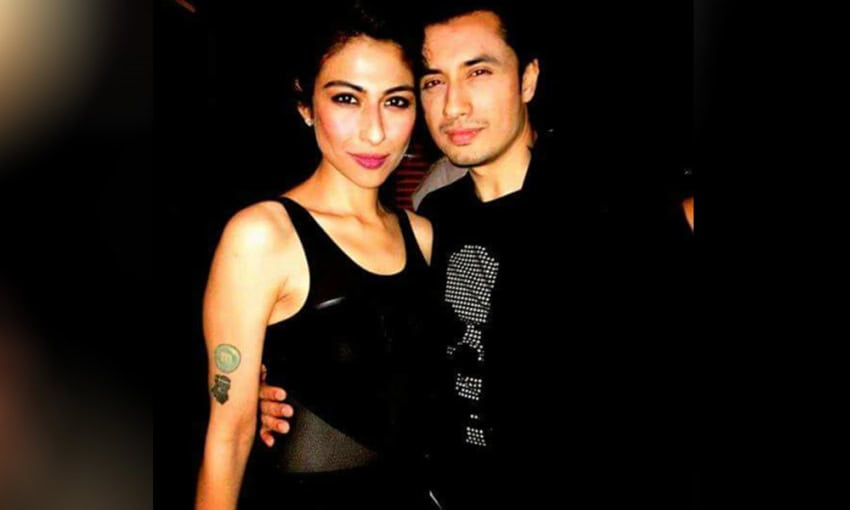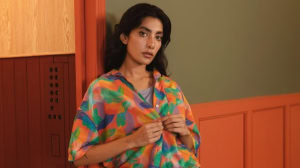ISLAMABAD – The Supreme Court has said it will decide when the statements of witnesses would be recorded in the Ali Zafar-Meesha Shafi defamation case.
The case stems from accusations of sexual harassment against popular singer Ali Zafar by leading Pakistani actress and singer Meesha Shafi.
Meesha, who has acted in films such as The Reluctant Fundamentalist, says Ali subjected her to “harassment of a physical nature”. Ali has categorically denied the claims and since being pursuing legal action.
On Thursday, the apex court heard an appeal filed by singer Shafi against the Lahore High Court verdict through which her plea for joint cross-examination of witnesses was rejected.
A three-member bench of the apex court headed by Justice Mushir Alam and comprising Justice Ijaz Ul Ahsan and Justice Yahya Afridi heard the case. During the course of proceedings, Justice Ijaz Ul Ahsan asked Shafi’s counsel under which law he wanted the testimonies of all the witnesses to be recorded together.
Meeesha’s lawyer requested the court to record all witness statements at the same time and then cross-questioning them together.
Justice Ijazul Ahsan remarked that the statements of witnesses cannot be recorded as per the wishes of Meesha’s lawyer.
Shafi’s lawyer argued that he wanted to establish before the court what had transpired during the jam session, during which Shafi had accused Zafar of harassing her.
After questioning the counsel about his experience practising law, Justice Ahsan asked the lawyer whether he had ever observed in his 11-year career that the statements of all witnesses were recorded together and then they were cross-examined later.
Justice Ijaz Ul Ahsan remarked that there is no such precedent in his 30-year judicial experience.
Meesha Shafi’s lawyer maintained that he could cite several past court judgements to support his client’s appeal.
Upon this Justice Ijaz Ul Ahsan responded,” You cannot because there are zero court precedents”.
The lawyer argued that the court had talked about the issue in several past verdicts.
Justice Ijaz Ul Ahsan remarked that a court judgement is not some divine script. He observed that the court judgements can also be wrong.
The lawyer representing Zafar informed the bench the statement of one out of 11 witnesses has already been recorded.
The court adjourned further hearing of the case until next week, when the lawyer for Zafar will resume his arguments.
https://en.dailypakistan.com.pk/lifestyle/defamation-suit-session-court-accepts-meesha-shafis-petition-to-change-judge/
Meesha Shafi had approached the Supreme Court last month against high court decision over her conflict with singer Ali Zafar. She pleaded in her petition that trial court has not allowed cross-examining the witnesses which is a fundamental right.
“It is not possible to cross examine on the basis of their statements without knowing the witnesses. Presenting witnesses is right of one party and cross questioning them is right of second party,” Meesha stated in her petition.
Even the Lahore High Court endorsed the trial court’s decision, the petition stated.
Meesha had requested the Supreme Court to allow her to cross question the witnesses besides setting aside high court decision.
This case is first of its nature which has been filed in the country’s top court.
Describing it as “an extremely traumatic experience”, Meesha Shafi in April last year wrote on Twitter that she had suffered sexual harassment from Mr Zafar “on more than one occasion”.
Sharing this because I believe that by speaking out about my own experience of sexual harassment, I will break the culture of silence that permeates through our society. It is not easy to speak out.. but it is harder to stay silent. My conscience will not allow it anymore #MeToo pic.twitter.com/iwex7e1NLZ
— MEESHA SHAFI (@itsmeeshashafi) April 19, 2018
Ali Zafar, who is a popular singer and has starred in several Bollywood films, said in response: “I categorically deny any and all claims of harassment lodged against me by Ms Shafi. I intend to take this through the courts of law.”
— Ali Zafar (@AliZafarsays) April 19, 2018
He added that he was “deeply aware and in support of the global #MeToo movement and what it stands for”. “I have nothing to hide,” he said. “Silent is absolutely not an option.”
Since then, both the former colleagues have been engaged in a nasty fight over social media and in the courts.
















